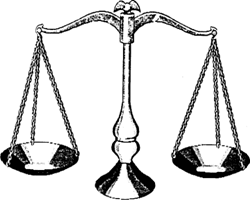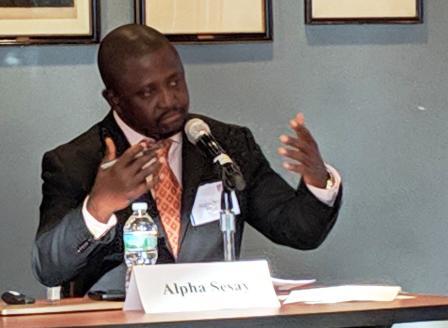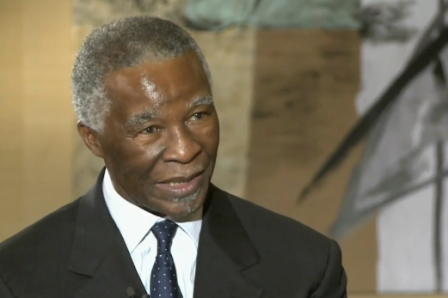Justice for All? Forgotten Victims and Africa’s Response
International criminal justice gained fresh impetus following the tragic events in Rwanda and the Balkans in the 1990s. From the ad hoc International Criminal Tribunals for Rwanda and the former Yugoslavia, and the Special Court for Sierra Leone, to the International Criminal Court (ICC), the international community showed that where there is willingness to bring to justice the people responsible for heinous crimes, it can be done. While the verdicts in those trials cannot bring back those who were killed, the trials can help bring a sense of closure to their families.
Since it was established, the ICC has been active primarily in Africa, with all of its current suspects coming from the continent. The court is investigating situations in Central African Republic, Ivory Coast, Democratic Republic of Congo, Sudan, Libya, Uganda, and Kenya. This has led to complaints that it is pursuing justice on a selective basis. This perceived bias against Africans has clearly offended many, particularly African leaders.
It is a completely different story for victims of heinous crimes in Syria, the West Bank and Gaza, Bahrain, and other parts of the world. The world has watched while thousands of civilians have been killed and millions of others forced out of their homes. Yet, there have been no concrete steps to deliver justice to them. While the personal circumstances of victims or the degree of suffering may vary, each victim needs and deserves justice. Yet it smacks of a double standard to address the justice needs of victims of Africa, while neglecting those of victims in other parts of the world.
The majority of situations before the ICC are in fact a result of voluntary requests by the African governments of the countries where the crimes were committed or referrals by the UN Security Council. But as the ICC celebrates its tenth anniversary this year, it is time for the Court and states to reflect more seriously on the crimes and injustice suffered by victims outside Africa. It is time to reposition the justice trajectory to combat the scourge of impunity more consistently across the globe.
The AU’s concerns with the ICC and the United Nations Security Council also include a perceived disrespectful manner with which the UN dealt with its application to defer the arrest warrant for President Omar al-Bashir of Sudan. AU concerns have led to the AU calling for its members not to cooperate with the ICC in arrests of sitting heads of state — al-Bashir and Muammar Gaddafi of Libya, when he was still in power. The AU has suggested it might also broaden the mandate of the African Court of Justice and Human Rights (ACJHR) to include prosecution of war crimes, crimes against humanity, genocide, and other crimes prevalent on the African continent, such as mercenary activities.
Regardless of the merits of the AU’s concerns, the AU and the UN Security Council perhaps could have managed the situation better. The Security Council could have taken African states’ deferral requests more seriously by deliberating on them in formal sessions. The AU could have expressed its disappointment that the al-Bashir case was not deferred without passing sweeping resolutions not to cooperate in arresting African heads of state who were ICC suspects.
The AU’s decision to expand the mandate of the African Court seems to be a clear result of its gripes against the UN Security Council and the ICC and raises important questions. Would it mean that African states would no longer feel the need to participate in the ICC and carry out their cooperation obligations under the Rome Statute that they have assumed? Would it mean that the current cases before the ICC involving situations in Africa would somehow be removed from the ICC’s jurisdiction? Would it mean that all African states would no longer see the need for an ICC and thus not make any more referrals to the court?
It is time for the AU, ICC, and UN Security Council to reflect a bit more and take some practical steps forward. There is no point reinventing the wheel. The AU has genuine concerns that need addressing, but setting up an African Court with criminal jurisdiction may not provide a “universal” remedy to impunity gaps.
African leaders should focus more on improving the human rights situation on the continent and promoting complementarity with the ICC, thereby encouraging states to carry out proceedings at the national level. Extending the jurisdiction of the African Court would be too expensive a distraction to afford – at least for now. African leaders should instead sustain efforts to strengthen national accountability mechanisms, while delivering on their human rights obligations under the African Charter on Human and Peoples’ Rights.
Ten years after the ICC was established as a permanent court, it should be sure to hear the voices of victims throughout the world. This can be done by pressing for more countries to join the ICC, and by insisting that the UN Security Council refer cases to the ICC whenever the gravest crimes are committed — irrespective of politics.
But African victims also deserve a justice mechanism that will work for them, not struggle to keep itself afloat and potentially be at the whim of African leaders who are responsible for the atrocities against the victims in the first place. The ICC provides that justice mechanism. Just ask victims of post-election violence in Kenya who may not otherwise have seen their leaders made to answer questions about their involvement in the post-election violence. The voices of those victims must also be heard.
By Ibrahim Tommy
Ibrahim Tommy is executive director of the Centre for Accountability and Rule of Law.
Stay with Sierra Express Media, for your trusted place in news!
© 2012, https:. All rights reserved.





